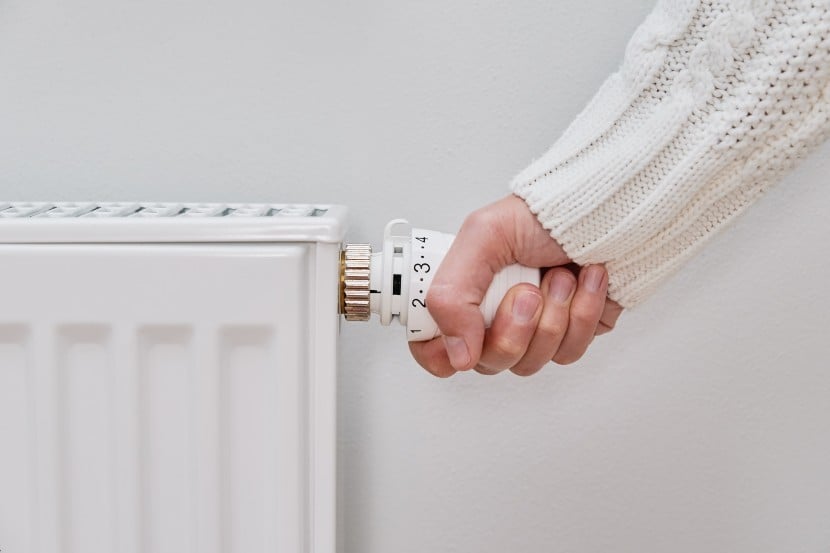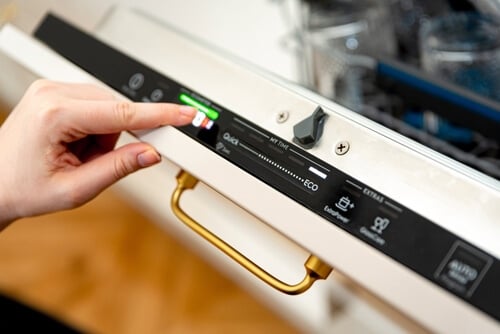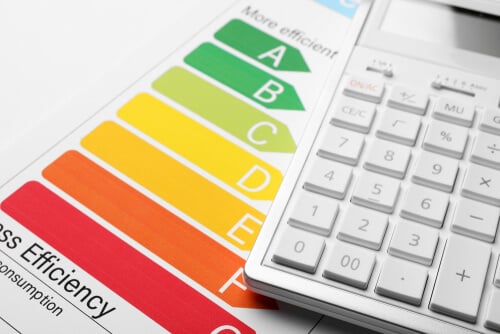With energy bills so high, anything you can do to keep costs down is worth a try.
And during the recent cold snaps, the current cost of living crisis has to be balanced with the need for a warm home. So saving energy where possible is now a necessity.
By thinking carefully about limiting the amount of gas and electricity used, we can avoid waste and hopefully keep our energy costs to a minimum.

Even with the energy price cap and Energy Price Guarantee, the average UK household can currently expect to spend around £2,500 a year on gas and electricity over the year. And while we wait for spring to arrive, there are plenty of ways to save on our heating bills.
Get personalised electricity deals straight to your inbox
12 ways to save money on heating
With energy prices still high, here are our top tips to help you cut costs:
1. Consider installing smart heating
If you’ve got some spare cash, you could invest in a smart heating system. Smart heating isn't the same as a smart meter, which is a device that sends near-live readings to your supplier.
A smart heating system from the likes of Hive, Nest, Honeywell or Drayton links with other devices, such as your smartphone. You can control your heating system using an app, ensuring your house is toasty and warm when you get home.
2. Install thermostatic radiator valves
Without thermostatic radiator valves (TRVs), your system’s either on or off. With TRVs you can set to a setting, usually between 1 and 5, and they shut off when the room reaches the target temperature. You need a TRV on all your radiators, except 1 – usually in the bathroom, so the system is balanced.
Whether you’ve got TRVs or not, it’s best to turn off radiators in unused rooms, such as spare bedrooms.
3. Turn radiators off in unused rooms
By being more selective with the rooms you heat, you could save a lot on heating bills.
For example, if you're working from home with nobody else in the house, why not consider only turning the heating on in the room you're working in?
If you've got thermostatic radiator valves, you should be able to control the heating in each room individually.
4. Draught proof your home
Draughts cost money, as they're a sign that heat is escaping from your home. Where possible you should do what you can to eradicate draughts, by trying the following:
-
Seal gaps between skirting boards, loft hatches, window and door frames and walls with caulk or another sealant.
-
If you don’t have double glazing, apply self-adhesive shrink wrap to clean, dry window panes.
-
Block fireplaces, chimneys and flues that are no longer used. You can do this with an inexpensive chimney balloon.
-
Ensure carpets have underlay to offer extra insulation.
-
Use draught excluders to block gaps under doors.
-
Buy keyhole covers and letter boxes with a brush or rubber seal.
-
Hang curtains in front of all windows and even your front door (especially if it leads directly into your living room).
5. Insulate your loft
About 25% of the heat loss in UK homes happens through the roof, so adding insulation could cut your heating bill dramatically. According to the Energy Saving Trust, laying rolls of loft insulation in a semi-detached could save you £355 a year in energy bills..
6. Bleed radiators
If your radiators feel cool at the top when the heating’s on, air is trapped in the radiator. This reduces the efficiency of your unit, meaning you need to bleed them.
How to bleed a radiator:
Bleeding radiators is a simple job, and takes next to no time. All you need is a radiator key, which you can buy from any hardware store for around £1.
-
When your system’s off, open the radiator valve by turning the radiator key
-
Have a cloth to hand as some vapour and water could vent out
-
Once the hissing stops, the radiator’s been bled
-
Tighten up the valve by turning the key in the opposite direction
Can you bleed a radiator when the heating is on?
Never bleed a radiator when the heating’s on as the radiator could be too hot to touch. Also, any spray from the open vent could scald you.
7. Consider an electric blanket or fleeced hoodie
There’s a lot to be said for wrapping up warm. Don’t be a style diva behind closed doors. Get out that cosy jumper, or buy a heavy fleece onesie.
You could also choose a portable electric blanket or even a hot water bottle. In short, dress for the season rather than rely on the central heating.
8. Don’t block radiators
Even if there's a lack of space, it’s never a good idea to put furniture in front of a radiator. Likewise, avoid having curtains that cover or overlap the top of your radiators. Heat rises, so you don't get any benefit.
Also, think twice before using a radiator cover. They may look smart, but they block heat that could be warming the room.
9. Consider portable electric radiators
Portable electric radiators are expensive to run. Each unit of energy produced by a portable radiator costs 3 times more than with your central heating.
But don’t dismiss them if you tend to use 1 room for most of the time. In this case, it could be worth switching on a portable radiator to take the edge off the cold, rather than start the central heating.
Oil portable heaters are a cost-effective alternative to portable electric heaters. They cost a little more but the oil retains its heat, unlike the electric radiators, which cool almost immediately.
10. Turn down your thermostat
The ideal temperature of your thermostat is between 18°C and 21°C.
Turning your thermostat down by just 1 degree could save you money - and you might not even feel the difference!
11. Invest in a heated clothes airer
Rather than block your radiators, and turn on the heating just to dry clothes, you could buy a heated clothes airer for around £50. These options look like standard clothes horses, and are electricity-powered, heating the rails at a cost of just 4-10p an hour.
12. Consider a smart gas meter
A smart meter displays your real-time energy consumption and an accurate cost, so you don’t pay more than you need to. This makes it easier to keep track on what you’re spending on your heating and is a useful reminder to be as frugal as possible.
Around 40% of homes have a smart meter, and the government has pledged to offer one to all UK homes by 2025.
Is it best to keep the heating on all the time?
No. It’s a myth that keeping the heating on all the time is cheaper than firing up the system a couple of times a day. Keep the thermostat down, and tinker with the number of hours you have the heating on, until you find a happy medium.
And unless you're on an economy 7 style tariff, there's no cheapest time to put the heating on. If you have a hot water tank and economy 7, you might want to heat your tank overnight to take advantage of the reduced rates. But you can't really pre-heat your house for the day in the same way.
How many hours a day should the heating be on?
The amount you need to use your heating depends on:
-
How well insulated your home is
-
How much time you're at home
The recommended temperature is 18°C at night, and 19-21°C in occupied rooms during the day. Young children and older people plus those with respiratory conditions are at much higher risk in cold conditions.
No-one wants to be living in arctic conditions any more than they want to pay more for heating than needed. So it makes sense to play around with the thermostat, nudging it down a degree or 2 and cutting the length of time it’s on where possible.
Can I switch to a new supplier if my heating bill is too high?
The current advice is to keep with your present UK energy supplier, as there are few if any deals around. Your best bet may be to register for energy tariff updates through our Get Switch Ready service, so you can switch as soon as any savings emerge.
If you’re struggling with heating bills…
The UK cost-of-living crisis is affecting everyone, meaning a lot of us are having to juggle our finances right now. If you’re struggling to pay your energy bills, contact your energy company and explain the situation, they should be able to help.
If you receive benefits or pension, you might also qualify for help with your bills.
For more on what to do if you’re struggling to pay your energy bills visit Citizens Advice and Ofgem.







